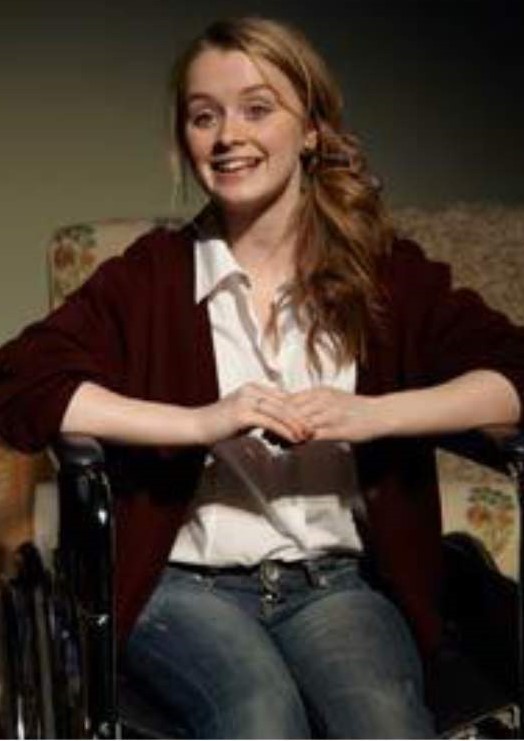Blog
Read All About It!
Seek and you will find

Are you, like me, tired of Andrew Marr and Emily Maitlis constantly flying like vultures over a dying body?
Look for people when they are at their best, not their worst. See what people can achieve without a university education. See when people put service above self. See when women are stronger than men – they live longer and they multi-task. See when people, even disabled, feel confident in themselves.
Redact negativity
When things are good, you feel that they will last forever and when bad that they will be bad forever. Neither is the case. Now is the time to think of better times ahead and plan for them.
Tomorrow should not just be like yesterday.
I shall be opening this in my zoom meeting on Sunday at 3 pm. Message me if you would like the passcode.
I don’t think Karl Marx would have been a Rotarian

I am not a badge person. I do not usually wear my Rotary badge. Most Rotarians do. Maybe I feel it looks a bit old fashioned, from a lost age. Certainly, the Rotary of Club of Sunderland is not the same as the Club I joined in 1976, joining at that time as a one-shop retail furnisher with that classification and nominated by a local furniture manufacturer of some repute, both taking time off to meet for lunch. Then the Editor of the Sunderland Echo, the clerk to the magistrates and many prominent figures in the town did likewise. Those were the days, my friends.
Today the Club is much smaller. Senior executives work their lunches. Yet it still promotes Bring-it-on an inspiring scheme introducing youngsters at school to the local companies that will offer them employment, still raises tens of thousands of pounds for local charities manning a University car park on football Saturdays.
On reflection maybe I should wear the badge with the accreditation Paul Harris Fellow in recognition of an act of Rotary service, which is what the Club is all about. There cannot be many Rotarians who would say that the membership of their Rotary Club totally coloured their years of retirement. Mine did.
Little did it occur to me when I joined that it would give me an interest in children with special educational needs to this day, write and stage a play Death of a Nightingale in London, become a social media activist and a blogger. My life has been full of the unexpected, this just one of them.
An innocent enough start. I meet Fredwyn Haynes, himself a Rotarian, the headteacher of Barbara Priestman School, then an all-age school for children with a physical disability and a learning difficulty. As an act of Rotary service, I become first a governor, then its chair of governors. I discover a world I scarcely knew existed. In truth not demanding of much of my time. The teachers, carers, physio’s, school nurses, the kids themselves and their parents a happy purposeful family.
When Fredwyn retired all changed. A battle royal with the Local Authority following national policy wanted to close the school against the wishes of everyone in it and it turned ugly. Ultimately it was a losing battle as the school is now no longer what it was.
That was when this part of my life changed, and I changed with it. I saw many things differently. Hence my play – a tragedy – to try to capture that in words; not least the relativity of human rights that human rights lawyers fail to recognise. How do you deal with a situation where the rights of children to mainstream education conflict with the rights of parents to their choice of school, and their children have good reason to agree with them? Also, a single-track education could deny them opportunity. In education diversity preempts equality.
You can join me in my zoomed meeting on Sunday at 3 pm when I can share that with you. I walk and talk in the footsteps of the late Sir Ken Robinson. That will give you some idea of where I now am.
And maybe you will also get a different take on Rotary and Rotarians. The Sunderland Rotary Club is just one of 35,000 world-wide and I am just one of over a million members! Message me and I will give you the passcode.
Why did I write and stage “Death of a Nightingale”?

Why did I write and stage Death of a Nightingale for a month in the New End Theatre in London? The answer at 3 pm on Sunday 17 January. It was as great a surprise to me as to anyone that I should do so. It was certainly not part of a plan or even the slightest expectation
Very simply it was my protest against zany ideologues who shut over 100 schools in the UK totally regardless of cost and consequence, denying parents of children with special needs their choice of school for their children and little Hitlers who helped them. Other routes to protest were blocked off. I was to discover that even this route had to face some obstruction.
My play is a tragedy. It is fiction but it draws on uncomfortable fact and reveals uncomfortable truths about those closures.
And I tell it now because it seems to me to be the best way to flag up more zany ideologues and little Hitlers, and deal with a personal situation when again all other routes appear to be blocked.
That situation further illustrates what I need to say. Human Rights are not always the road to Heaven that some people think that it is. In education especially, Equality is a mischief word when Diversity is a good deal more important. There are casualties, many of them. My story started out in the world of special educational needs. It ends echoing the words of the late Sir Ken Robinson on education generally.
For me, life has been a series of learning experiences and I would like to share them with you.
This is the situation. I have written a book entitled Kafka’s Cycle – slow death of a complaint. You may think what a fuss about a cycle lane for non-existent cyclists. Yet it provides a case study critical of the Ombudsman system in the UK; and it also criticises the judgment of a firm of human rights lawyers who refused to write a letter, to be precise a pre-action protocol letter, on the grounds that in their view judicial review would be “bound to fail” and professionally they could not write it. And I could not write it either because I was a non-practising barrister – I prefer now to call myself a former barrister. I had given them a dossier with over 100 pages of evidence and explanation.
Today you can actually see precisely what I was trying to complain about in a temporary pop-up cycle lane in Newcastle. And see what happens when Sustrans, the cycling lobby, is in charge! If you click the link you, like me, may find the negativity of the lawyers here totally incomprehensible.
I have a publisher for this book, but they have told me that they cannot publish it because that firm of solicitors to whom I sent a copy has said that if I criticise them, they will sue for Libel and they refuse to even to read the book and tell me where anything I write is untrue or dishonest.
They put their reputation before my freedom of expression.
I have spent the past year – and some money with it – trying to find allies in the legal profession prepared to assert what actually underlines much of my writing and that is the relativity of human rights. Often human rights are not all equal and absolute. Often, they are relative and qualified by the rights of others that conflict with them, sadly then totally ignored, honesty and fair play AWOL.
Here, for instance, is my right of free expression that, in my view, is more important than theirs to protect their reputation. The Solicitors Regulation Authority said that their response was “robust” even though they are on record as saying: “Where two or more Principles come into conflict the one which takes precedence is the one which best serves the public interest in the particular circumstances, especially the public interest in the proper administration of justice “.
For human rights lawyers and lawyers generally to deny this, in my view, is sheer hypocrisy. Solidarity appears to pre-empt integrity every time. And not just lawyers. This is a virus that infects corporate UK. If they also deny the relativity of many human rights as well, they make another big mistake.
I told this story at Limmud, a Jewish Learning experience religious and secular in its reach, this year zooming its participants instead of meeting up at a University. My story describes my learning experience in a life of many experiences. I now intend to re-zoom it at 3 pm on Sunday 17 January and give the story a larger audience. Please message me and I will give you access as long as numbers allow.
These are the words of Sir Ken Robinson that I echo:
•“If you’re not prepared to be wrong, you’ll never come up with anything original.”
“The fact is that given the challenges we face, education doesn’t need to be reformed — it needs to be transformed. …
“Creativity is as important as literacy.”
“Education and training are the keys to the future. A key can be turned in two directions. Turn it one way and you lock resources away; turn it other way and you realize resources and give people back to themselves
